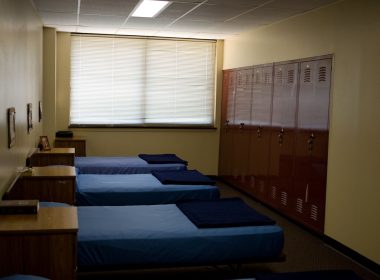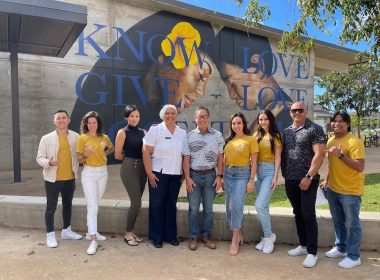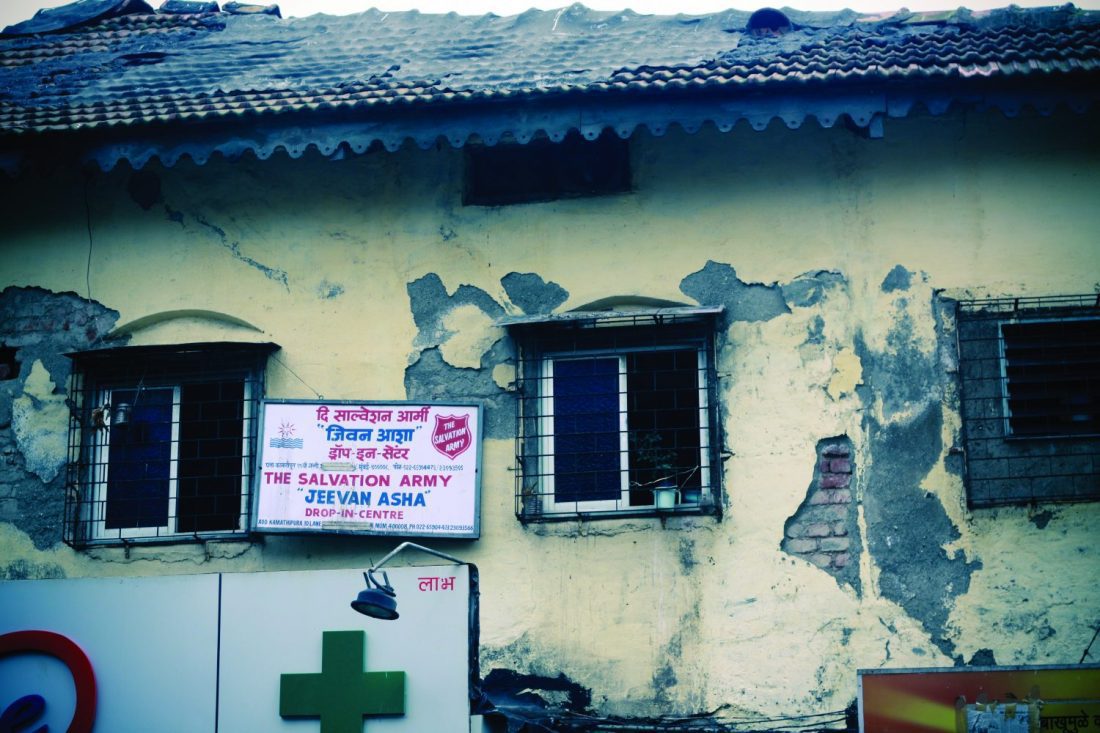Daring acrobatics, elephant tricks, and glitzy, colorful costumes made it glamorous.
At 13, Sarai joined the circus, believing her life would drastically improve.
“When we got to Mumbai, they sold me, and forced me into commercial sex work,” Sarai said.
She is not alone.
An estimated 27 million people around the world are victims of human trafficking, including forced labor and forced prostitution, according to the U.S. State Department’s 2012 Trafficking in Persons Report.
Non Governmental Organizations (NGOs) estimate that up to 65 million people in India are in forced or bonded labor, but no account of those trafficked for sexual exploitation exists.
Kamathipura—the city’s “red light” district—is just one of the slums that half of Mumbai’s population lives in, according to the Municipal Corporation of Greater Mumbai. A lack of sanitation facilities, organized garbage collection or clean water result in people defecating in the open, mounds of trash rotting on the streets, and the spread of illness.
In this district, prostituted girls service up to 45 men a day, according to Apne Aap Women Worldwide (AAWW), a registered non-profit in the U.S. and charitable trust in India that works against sex trafficking.
At the center of it all, visibly occupying multiple buildings in Kamathipura, The Salvation Army is at work.
It operates an English school, a blind working men’s hostel, an HIV/AIDS clinic, and churches in this area, in addition to two programs designed specifically to combat commercial sex work: Jeevan Asha, a drop-in center for prostituted women and a daycare for children ages 1-17, which converts into a night shelter for young boys, and Aruna Shelter, a boarding school for 30 girls ages 4-12. It once physically rescued girls, 25 girls between 2004-2010, but now turns over information about confirmed underage
sex workers to organizations like the International Justice Mission that focus on rescues.
Up a steep, darkened flight of stairs, three tile-floored rooms that once functioned as a brothel, now offers refuge to women and children. With four Salvation Army staff
members, Jeevan Asha is open for eight hours each day, beginning at 9:30 a.m. In existence since 2004, the program focuses on nutrition, spirituality and education. It provides
three meals and snacks a day, counseling, HIV/AIDS testing, and service referrals.
On this day, roughly 40 women and children filled the small space, sitting on the floor. The women were dressed elegantly, in traditional silk and chiffon saris in colors ranging from turquoise, lavender to green, and with gold adornment from earrings, toe rings to nose piercings.
To be a woman in India, one said, you are expected “to live a moral life, but we are not in the position to do so.” In mid-2012, a TrustLaw poll of 370 gender specialists around the world voted India the worst place to be a woman out of all the G20 countries, due largely to infanticide, child marriage and slavery.
The women at Jeevan Asha would agree with this ranking.
“There’s no joy for us,” one woman said. “If our children can get out, that will give us real joy.”
The Salvation Army focuses largely on the children. As Captain Andrews Christian, who was appointed to oversee work in this area in June 2012, said, “We believe the activities of the mother should not affect the children.”
In 2011, Jeevan Asha began housing boys at night upon their request, including Anshul, 18. When his mother was sick, The Salvation Army arranged for hospital care and eventually paid her funeral expenses. No longer having to worry about how he will eat, Anshul is currently enrolled in a hospitality management course taught by the local YMCA.
He teaches a lesson to other children at Jeevan Asha once a week from what he learns.
“Growth is natural, but what you do to study will develop yourself,” Anshul said of his upcoming lesson on growth and development.
Rahul, 19, said he came to Jeevan Asha because he didn’t feel comfortable at home with his mother workingin commercial sex work. He completed the YMCA course
and recently found a job preparing sandwiches, making enough to support himself.
Ajay, 6, who wants to be a Bollywood actor, likes the food and the gifts at Christmas.
 Mothers of young girls who attend the Jeevan Asha daycare and are in need of education and shelter, can sign a legal agreement to enroll their daughter in the Aruna Shelter.
Mothers of young girls who attend the Jeevan Asha daycare and are in need of education and shelter, can sign a legal agreement to enroll their daughter in the Aruna Shelter.
Since opening in 2001, roughly 150 girls have gone through the shelter, with 30 in residence at a time. The girls, ages 4-12, age out only after passing the 10th standard.
Stone shows through the once painted inside walls of the gated shelter in Kamathipura. Small barred windows reveal the reality of the area outside, but posters of animals, plants and shapes, and a bulletin board with each girl’s photo livens the space. Mothers are allowed to visit their daughters twice a month; no men can visit.
Priya, a mother of five, was married at 12 in Calcutta and moved to Mumbai with her husband at 20. She entered commercial sex work to earn money, but has enrolled all of her children in NGO shelters, including her two daughters at Aruna Shelter. The girls, ages 8 and 11, want to be a computer engineer and a teacher, respectively.
“I want them to have a future where they will stand on their feet and care for themselves,” Priya said.
Sarai, the once-hopeful circus performer, wants the same for her daughters, ages 6 and 10, who live at the Aruna Shelter. Though Sarai is one of a few women who got lucky when a man she later married rescued her from commercial sex work, their combined income as a driver and a tailor is not enough to adequately care for their three children.
“It is very safe here,” Sarai said on a visit to see how her daughters were doing in their studies. “I like that they teach my kids about Jesus, and that they do outings, like picnics.”
Yohan Jadhav, program manager for both Jeevan Asha and Aruna Shelter, said he sees a difference being made in the area via The Salvation Army.
“If one girl is rescued,” he said, “a future family is rescued, too.”
Names of quoted commercial sex workers and their children were changed.











